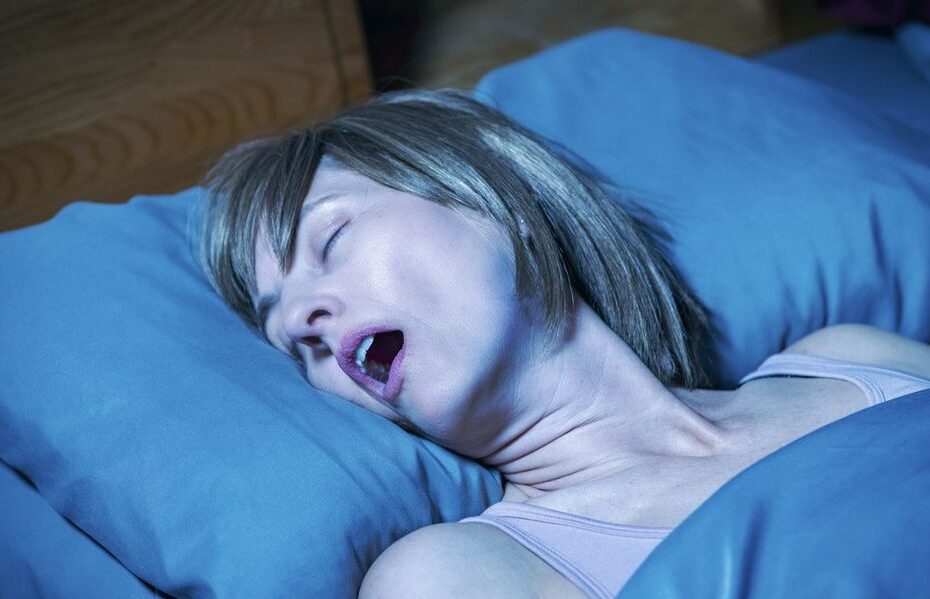If putting a piece of tape over your mouth before bed sounds more hostage-y than helpful, you’re not alone. We have anxious boob sweat just thinking about it. But a lot of people are giving lip service to mouth tape for better sleep.
The viral trend has more than 40 million views on TikTok and celebrities like Gwyneth Paltrow (who also sells mouth tape on her website) swear — er, sniff? — by it.
To get down to the mouth-breathing basics, we asked Smita Patel, D.O., an integrative neurologist and sleep medicine physician who is a member of HealthyWomen’s Women’s Health Advisory Council, what you need to know about mouth taping for sleep.
What is mouth taping?
Mouth taping involves applying a piece of tape over your lips at night to keep your mouth closed while you sleep. This essentially forces you to breathe out of your nose throughout the night.
The theory is that forcing yourself to breathe through your nose can help you sleep better because mouth breathing during sleep can have negative effects on your health, like causing:
However, Patel noted that there’s not much evidence to back up the theory. “There are few studies on mouth taping, and it has not been proven to treat any health issue effectively,” she said.
Mouth taping for snoring
In addition to stopping mouth breathing, its bright-eyed supporters say mouth taping can also help reduce snoring. And one very small study from all the way back in 2015 did find that participants snored less after mouth taping.
But snoring that gets in the way of sleep can be a sign of obstructive sleep apnea, a serious sleep disorder where you repeatedly stop breathing during the night. “In the case of obstructive sleep apnea, taping the mouth shut could exacerbate breathing problems, especially for those with nasal congestion or obstructions,” Patel said. “And while it may reduce snoring, mouth taping can potentially worsen sleep apnea by making breathing more difficult.”
Side effects of mouth taping
If you’re a nocturnal mouth breather, waking up drool-free is the dream. And it’s tempting to turn to an easy fix like a piece of tape to get quality ZZZ’s. But in addition to the lack of long-term research on mouth taping, there are other downsides to consider.
The side effects of mouth taping can include:
- Skin irritation on or around the lips
- Pain when taking off the tape
- Discomfort when wearing the tape
- Anxiety from the tape
- Difficulty falling and staying asleep because of the tape
Who should not try mouth taping
Mouth taping can severely affect the ability to breathe for people with nasal congestion, allergies, colds, sinus infections or structural issues like a deviated septum. So, if you have any of those conditions, steer clear.
Also, people with severe heart or lung problems, a BMI over 35 and anyone taking sedatives or drinking alcohol are not advised to try mouth taping.
Is mouth taping safe?
Patel said healthcare providers generally advise against using mouth taping as a DIY solution for sleep issues because it may worsen sleep apnea by making breathing more difficult. And, of course, the lack of scientific evidence that it actually works.
Thankfully, there are a few things you can try that don’t involve taping your mouth shut. For one, science says sleeping on your side can help with snoring. And you can reduce mouth breathing and increase nasal breathing at night by using over-the-nose strips that help open your passages and make it easier to breathe.
Mouth taping for sleep may not be the best idea. But mouth taping other people during holiday parties? That’s the dream.
Related Articles Around the Web
